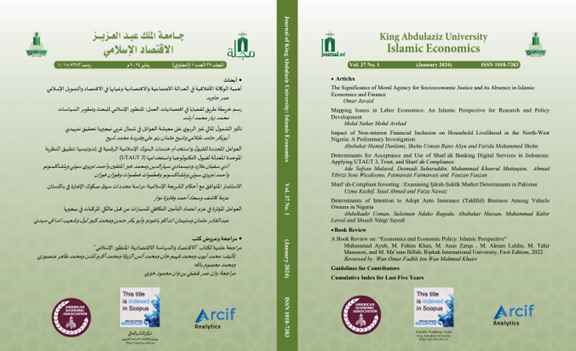Impact of Non-interest Financial Inclusion on Household Livelihood in the North-West Nigeria: A Preliminary Investigation
Main Article Content
Abstract
The first step for building self-sufficiency and sustainable livelihood is re-establishing the necessary assets for income generation. This study assesses the likelihood impact of non-interest financial inclusion across eighty (80) selected households in the Northwest region of Nigeria. Intuitively, the study considered three dimensions through which the impact could be felt; through change in households’ income, consumption, and savings. Guided by evidence in the empirical literature, the paper employs logistic regression model in its analyses. Preliminarily, the Cronbach’s alpha value of 0.62 suggests good acceptability and reliability of the research instruments. Empirical results show that the household’s change in income model is significantly influenced by household’s age, household size and cost of obtaining non-interest facility. The household’s consumption model shows that household headed by a female, those households who use public means of transportation and those able to access a non-interest facility witnessed increase in their livelihood. In the household’s savings model, the study found that years of business experience increases household’s savings habit, thus improves livelihood. Consequently, the study posits that measures aimed at improving access to non-interest financial services, especially for women, is capable of enhancing livelihood in the study area.

